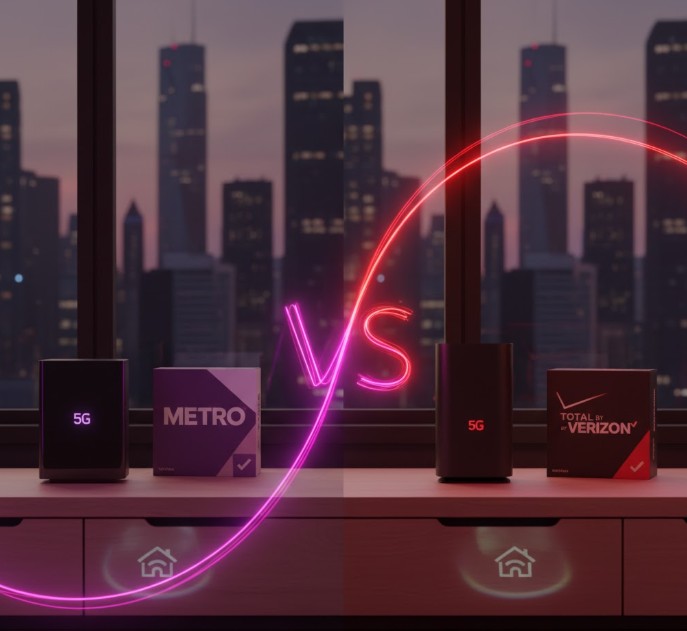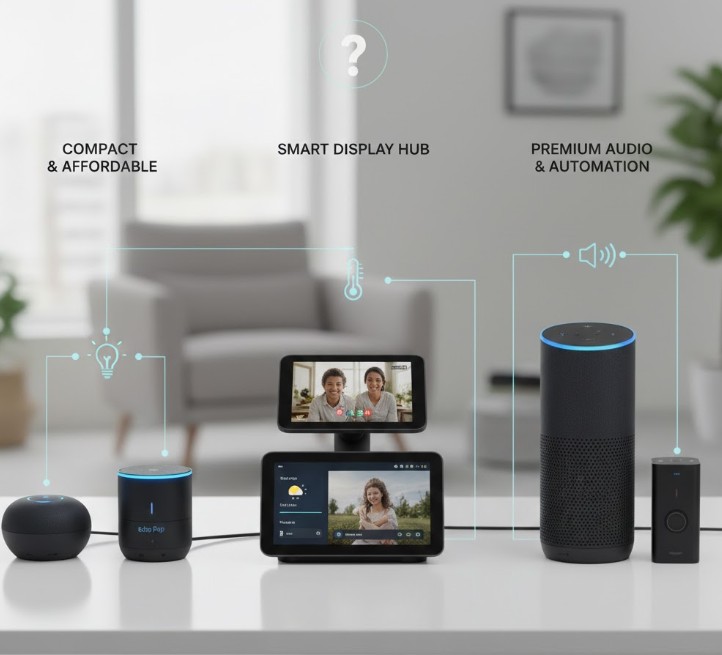Mygeekscore: Giant US carriers T‑Mobile and Verizon are stretching beyond cellular with 5G home internet service offered through their prepaid or value brands. Verizon-owned TracFone recently rolled out a prepaid 5G home internet plan costing approximately $60/month, which can be found in stores at target or online.
Meanwhile, T-Mobile’s prepaid brand Mint Mobile is selling its “5G Home MINTernet” plan on T-Mobile’s network with unlimited data and speeds of 133–415 Mbps for as low as $30/month under some terms.
How the Prepaid Plans Work and Pricing Explained
The home internet plans are prepaid, just like regular fixed-wireless 5G internet, but with one difference: they’re packed with or sold through prepaid carriers instead of regular postpaid plans. For instance:
The TracFone/Verizon plan involves purchasing a router (~$69.99) then $60/month for unlimited data (varies by region between 20–200 Mbps) through the prepaid route.
Mint Mobile’s service leverages T-Mobile’s 5G home network. With a Mint mobile cell phone plan and paying multiple months in advance, the price can fall to $30/month. Without the mobile bundle, it begins higher (about $40/month or more).
No long-term contracts, plug-in gateway devices (no drilling or technician call required), and an attempt to offer a less expensive, easier cable or fiber internet alternative are included in these plans.
What This Has for Consumers and the Market
For consumers, these new products have a number of implications:
- Affordability: The prepay model can be less expensive with reduced fees and easier pricing.
- Accessibility: Families who lack traditional broadband choices or are averse to contract obligations might find these appealing.
- Flexibility and bundling: The dynamic between mobile plan bundles and home broadband could promote switching/prepaying models.
- Speed & reliability caveats: Since home internet is brought to you over 5G wireless connections, speeds and latency can be hit-or-miss—some customers won’t receive fiber-quality performance. (Some users have complained about speed and latency issues on some 5G home configurations on Reddit.)
Reddit
Key Questions to Ask Before You Subscribe
Before you sign up for one of these prepaid 5G home internet plans, be sure you look into:
Availability at your address: 5G home service isn’t universally available; you’ll need to confirm coverage.
Actual speeds in your area: What the carrier advertises vs. what users get can differ due to signal or network constraints.
Data prioritization or throttling policy: Some plans may slow traffic after a high usage threshold or during network congestion.
Equipment costs and return terms: Even prepaid plans may require upfront hardware or lock-in minimum terms.
Bundle deals: More affordable prices can mean that you need to get a mobile plan with the same company or pay upfront for multiple months.
Is Prepaid 5G Home Internet a Good Idea?
If you want an effortless home internet solution with no contract and you’re in an area where 5G coverage is great, these prepaid offerings from T-Mobile’s and Verizon’s brands might be worthwhile. They provide a new way to get home internet—particularly for price-wise users or those who want flexibility. That being said, if you need super high speeds, low latency (e.g., for competitive gaming or pro-content creation), or fibre-like consistency, you should still find out if fibre or regular broadband is coming to your area. Short version: the 5G home internet prepaid wave has arrived—and it’s something to consider—but do your research first.
Content Source: PCmag.com







Leave a Reply